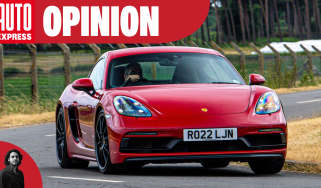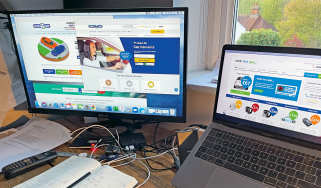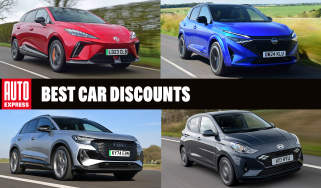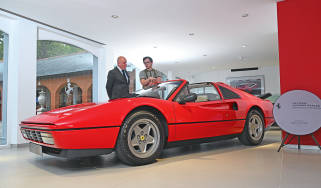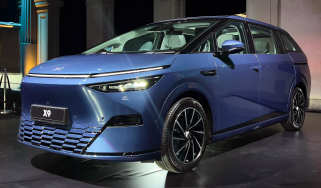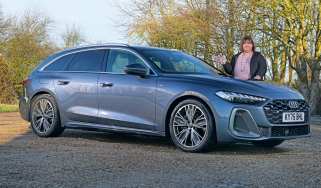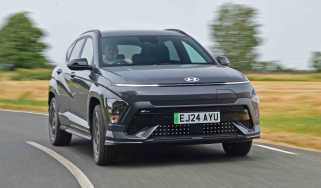When is the best time to buy a car?
Timing is crucial when it comes to buying a new or used car. We'll show you exactly how to get the best price, and the reasons why it works
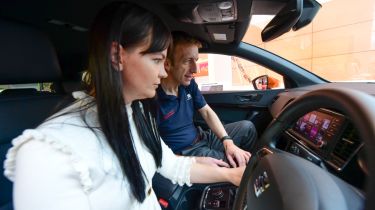
When it comes to buying a new or used car, timing is everything. Whether you need a replacement car fast due to an accident or a breakdown, or you have time to spend finding a great deal, this guide will help.
We've gathered expert tips on the best times to buy a car, so you can land a better deal. From strategic purchases to last-minute buys, we'll help you navigate the process more easily.
When should I buy a new car?
Dealers are under constant pressure to hit sales targets, which are often tied to bonuses and incentives. Manufacturers offer incentives to dealers and consumers while dealers will incentivise sales staff. Savvy buyers can use this to their advantage. Here’s how:
Quarterly deadlines: The last month of a dealer's quarter is often the best time to strike a deal. These periods end in February, May, August, and November. The pressure to meet targets intensifies, making dealers more willing to negotiate on price to secure a sale.
End of the financial year: April marks the end of the financial year for many businesses. Dealers are eager to boost their numbers, making spring an excellent time for car shopping.
Mid-week visits: While the day of the week doesn't affect the price, visiting a dealership on a weekday can lead to a more relaxed experience. With fewer customers, you'll receive a more personalised service and won't feel rushed into a decision.
Impending car model changes: If you don't need the latest and greatest, check Auto Express for news on upcoming car model launches or updates. Dealers will want to clear out the current stock to make room for the new version, offering significant discounts on the outgoing model.
Pre-Registered Cars: Dealers sometimes register new cars in their own name to hit sales targets. These "pre-reg" cars are sold to the public at a discount after three months. With new registrations peaking in March and September, you'll find a wide selection of these pre-reg bargains in June and December.
The agency model: A new era for car buying?
Just a few years ago, many thought that selling cars through a traditional franchised dealer network in the UK would soon be a thing of the past. But the much vaunted move to an ‘agency model’ (whereby the manufacturer sets fixed prices for its vehicles and sells directly to the customer) met with a lot of resistance, and the process has stalled - for now at least.
Some manufacturers, such as Mercedes and Volvo have adopted the approach, while others have retreated away from it because the complexities have yet to be ironed out.
Under the new system, dealerships would effectively become showrooms - places where buyers could look, learn, and perhaps take a test drive. While not everyone enjoys the process of haggling, it does mean that there would be less opportunity to negotiate on price or come to an agreement on a deal, because prices are fixed centrally by the manufacturer.
As car buying increasingly moves to online platforms, timing your purchase for a better deal may soon be a thing of the past.
The best time to buy used
Timing is less important in the used car market than the new one, but dealers still have targets, and fluctuations in supply and demand can impact prices. With the right timing, you could save a few quid.
The greatest supply of used cars reflects peaks in new car sales, as buyers trade in their old vehicles and dealers move them on. This means March and September, with their new registration changes, are the busiest times for traders. However, it can take a little time for these cars to appear on used car forecourts, as they need to be processed and prepared for resale.
The weather also plays a big role in used car prices. For instance, the price of a convertible will rise in Spring when buyers are keen on a summer of open-top motoring, while 4x4s and SUVs are more desirable in winter when snow and floods are on people’s minds.
Weather can also have less obvious effects. Buyers avoid trudging around forecourts in the rain and cold, so prolonged bad weather can make dealers – and even private sellers – more open to negotiating a deal. Ironically, the same applies during spells of great weather. Sunny summer weekends are usually spent at the beach or hosting barbecues, leaving car dealerships eerily quiet.
Once you’ve done a deal, it might make sense to pick up a used car at the start of the month. The DVLA charges for a full month of road tax even if you’re only using the car for a couple of days, and tax isn’t transferable from the previous owner.
While this may not matter much for small cars with low or zero VED tax rates, bigger-engined models are more expensive to tax. Picking up a car at the start of the next month could save enough for an extra tank of fuel.
Frequently Asked Questions
Buy a car with Auto Express. Our nationwide dealer network has some fantastic cars on offer right now with new, used and leasing deals to choose from...




